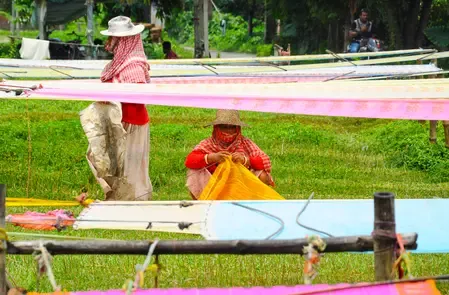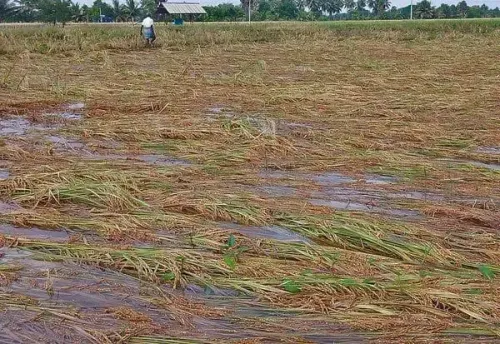How Have Over 14,000 Women Handloom Weavers Been Skilled Under the SAMARTH Scheme in the Last Three Years?

Synopsis
Key Takeaways
- Over 14,000 women handloom weavers trained in three years.
- The SAMARTH scheme focuses on women's empowerment in the textile sector.
- Financial assistance is provided for raw material and infrastructure.
- States like Assam and Kerala show significant participation.
- The initiative aims to revive India's handloom heritage.
New Delhi, Aug 8 (NationPress) In the spirit of celebrating Azadi Ka Amrit Mahotsav, the Ministry of Textiles has reiterated its dedication to uplifting women handloom weavers through various central sector initiatives. In a recent statement to the Rajya Sabha, Minister of State for Textiles Pabitra Margherita disclosed that more than 14,000 women weavers have received training under the SAMARTH scheme throughout the last three financial years (2022-23 to 2024-25).
The Ministry is executing programs like the National Handloom Development Programme (NHDP) and the Raw Material Supply Scheme (RMSS) to bolster the skills and livelihoods of handloom weavers, particularly women. Although these initiatives are designed to be inclusive, a 100% subsidy is specifically available for women weavers for the establishment of worksheds under the NHDP.
These programs offer financial support for acquiring raw materials, upgrading looms, solar lighting installations, skill enhancement, marketing assistance, technical infrastructure, and access to MUDRA loans. Furthermore, they include scholarships for the children of handloom workers and social security benefits.
Based on the statistics, Assam leads with 1,327 women weavers trained under SAMARTH, followed by Kerala (1,056), Tamil Nadu (1,027), and Maharashtra (1,027). Other states, including Odisha (727), Uttar Pradesh (727), Telangana (697), Manipur (579), Mizoram (498), Tripura (475), and Karnataka (474), also reported notable involvement.
The SAMARTH scheme, or the Scheme for Capacity Building in the Textile Sector, is a key initiative aimed at enhancing the skill set of the Indian textile workforce. It plays a vital role in helping traditional weavers, especially women, adapt to contemporary market demands through technical education and capacity enhancement.
The Ministry's initiatives are part of a larger effort to rejuvenate India's rich handloom legacy while ensuring sustainable livelihoods for female artisans.









